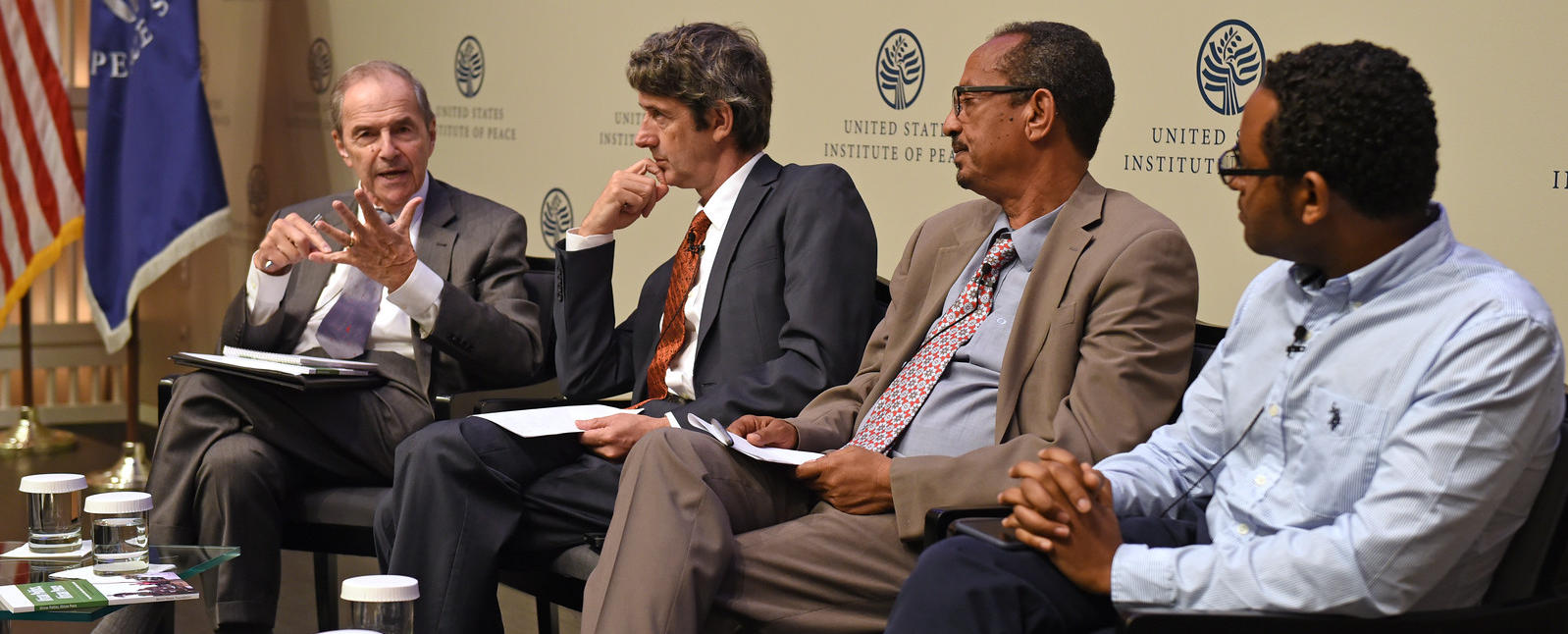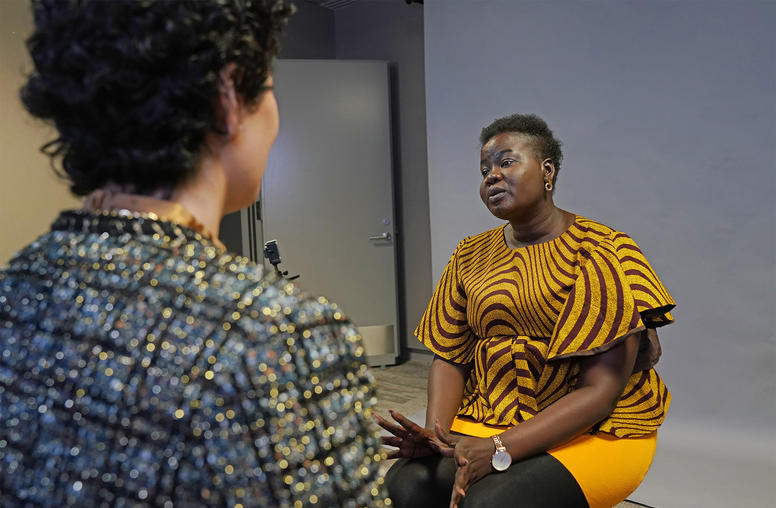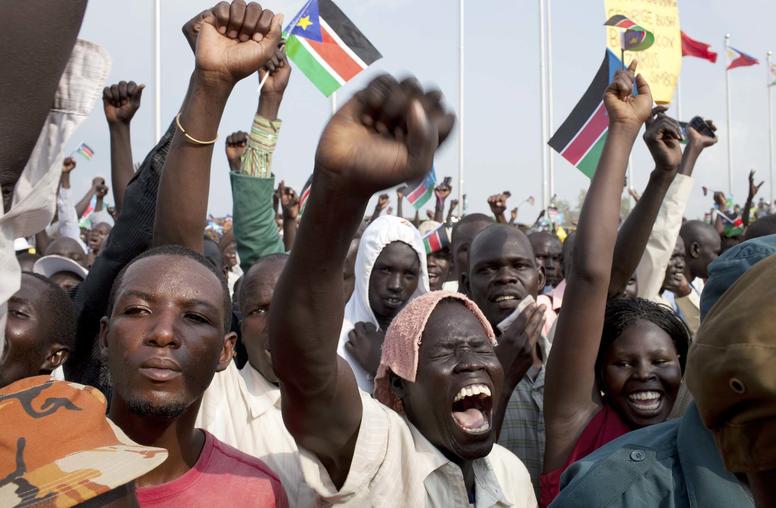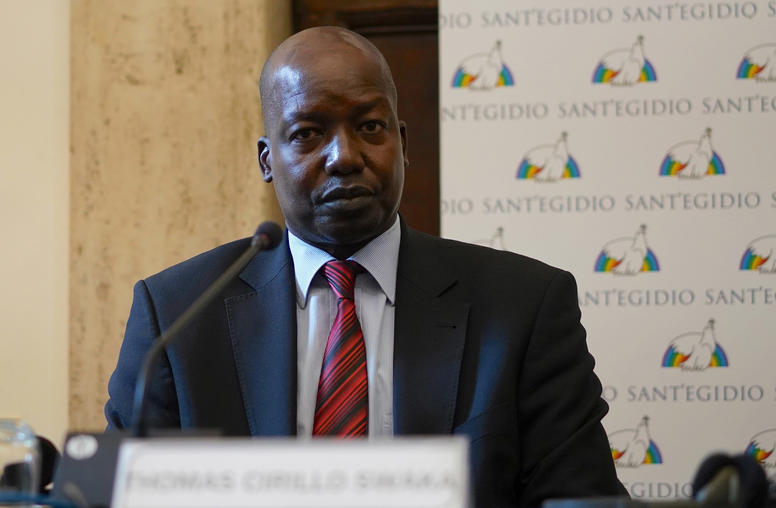African Politics, African Peace
The African Union, Peacekeeping and the Politics of Peace
More than 100,000 peacekeepers deployed in Africa make up three-quarters of such United Nations troops worldwide, and they illustrate the frequent response of the African Union to defuse violent conflict with military forces. But the AU has another strength: political power. On September 12, researchers Alex de Waal and Mulugeta Gebrehiwot of the World Peace Foundation offered recommendations from their new report on how the AU can harness its unique advantage to advance peace and security.

Their new report for the AU argued that the Union must move away from its reactive approach to violent conflict and draw on its inherent political strengths. Their extensive research included case studies of the Central African Republic, the Democratic Republic of Congo, Liberia, Somalia and South Sudan.
The authors, joined by AU representatives, shared major findings and offered policy recommendations for how the African Union can best harness its political expertise to reduce violent conflict on the continent and advance its mission of lasting stability.
Panelists
Alex de Waal
Executive Director, World Peace Foundation; Research Professor, The Fletcher School, Tufts University
Mulugeta Gebrehiwot
Program Director of the African Security Sector and Peace Operations Program, The Fletcher School, Tufts University
Solomon Dersso
Commissioner, African Commission for Human and People’s Rights
Amb. Princeton Lyman, Moderator
Senior Advisor to the President



